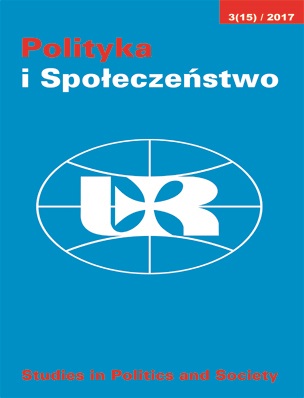DEMOKRACJA WEWNĄTRZZWIĄZKOWA JAKO PRZEDMIOT OBRAD KKP I KK NSZZ „SOLIDARNOŚĆ” W LATACH 1980–1981
INTRA-UNION DEMOCRACY AS A SUBJECT OF DEBATES OF NATIONAL LIAISON COMMITTEE AND THE COORDINATING COMMITTEE OF THE INDEPENDENT SELF-GOVERNING TRADE UNIONS “SOLIDARITY” IN THE YEARS 1980–1981
Author(s): Krzysztof ŁabędźSubject(s): Politics / Political Sciences, Public Administration
Published by: Wydawnictwo Uniwersytetu Rzeszowskiego
Keywords: Independent Self-Governing Trade Unions “Solidarity”; intra-union democracy; National Liaison Committee – debates; problems with democracy
Summary/Abstract: In the article, against the background of normative assumptions about intra-union democracy, the difficulties in the implementation of these assumptions are presented, especially in operation of the management of the union, as well as its causes. Some of the fundamental problems faced during debates of the National Liaison Committee (later National Committee) in the years 1980–1981, i.e. related to the degree of open-ness of the debates and negotiations and the status of the union's press (the degree of subordination to the union's instances), observance of statutory regulations and resolu-tions in the situation imposing leaving them, progressive centralization of decision-making processes (including the special status of chairman), as well as real abilities of the influence of regional authorities and member masses on the decisions, the actual role of advisers and experts in decision-making, the lack of separation of powers (unity of the union authorities). The causes of these problems were complex – some of them resulted from the ongoing strength of political conflict, some of the charac-teristics of the existing, centralized system of governance in the state, other from the necessity of rapid and effective action, communication difficulties, lack of appropri-ate competences or, finally, personality predispositions of both members of the leader-ship, as well as the ordinary members of the union. As a result, throughout the period under consideration, despite a number of achievements in the implementation of dem-ocratic principles in the union, it became impossible to fully comply with them in the management's activity.
Journal: Polityka i Społeczeństwo
- Issue Year: 15/2017
- Issue No: 03
- Page Range: 113-128
- Page Count: 16
- Language: Polish

